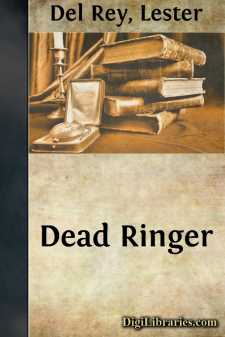Categories
- Antiques & Collectibles 13
- Architecture 36
- Art 48
- Bibles 22
- Biography & Autobiography 813
- Body, Mind & Spirit 142
- Business & Economics 28
- Children's Books 15
- Children's Fiction 12
- Computers 4
- Cooking 94
- Crafts & Hobbies 4
- Drama 346
- Education 46
- Family & Relationships 57
- Fiction 11829
- Games 19
- Gardening 17
- Health & Fitness 34
- History 1377
- House & Home 1
- Humor 147
- Juvenile Fiction 1873
- Juvenile Nonfiction 202
- Language Arts & Disciplines 88
- Law 16
- Literary Collections 686
- Literary Criticism 179
- Mathematics 13
- Medical 41
- Music 40
- Nature 179
- Non-Classifiable 1768
- Performing Arts 7
- Periodicals 1453
- Philosophy 64
- Photography 2
- Poetry 896
- Political Science 203
- Psychology 42
- Reference 154
- Religion 513
- Science 126
- Self-Help 84
- Social Science 81
- Sports & Recreation 34
- Study Aids 3
- Technology & Engineering 59
- Transportation 23
- Travel 463
- True Crime 29
Sort by:
by:
Alice B. Emerson
BREAKFAST EN ROUTE “There, Bob, did you see that? Oh, we’ve passed it, and you were looking the other way. It was a cowboy. At least he looked just like the pictures. And he was waving at the train.” Betty Gordon, breakfasting in the dining-car of the Western Limited, smiled happily at Bob Henderson, seated on the opposite side of the table. This was her first long train trip, and she meant to...
more...
by:
Alfred Sidgwick
INTRODUCTORY I was once greatly impressed by a story of an officer in the German army, who told his English hostess that he knew the position of every blacksmith's forge in Yorkshire. I wondered at the time how many officers in the English army had learned where to find the blacksmiths' forges in Pomerania. But those are bygone days. Most of us know more about Germany now than we do about our...
more...
by:
Pansy
CHAPTER I. "IT MAY BE THAT SHE IS WORKING STILL." It was raining drearily, and but few people were abroad—that is, few, comparatively speaking, though the streets seemed full of hurrying, dripping mortals. In the large dry-goods store business was by no means so brisk as on sunny days, and one of the younger clerks, whose station was near a window looking out upon the thoroughfare, had time...
more...
Chapter I. Par. "Mars dote on you for his novices." All's Well that ends Well. No one, who is familiar with the bustle and activity of an American commercial town, would recognize, in the repose which now reigns in the ancient mart of Rhode Island, a place that, in its day, has been ranked amongst the most important ports along the whole line of our extended coast. It would seem, at the...
more...
by:
Lester del Rey
There was nothing, especially on Earth, which could set him free—the truth least of all! Dane Phillips slouched in the window seat, watching the morning crowds on their way to work and carefully avoiding any attempt to read Jordan's old face as the editor skimmed through the notes. He had learned to make his tall, bony body seem all loose-jointed relaxation, no matter what he felt. But the...
more...
by:
Zoe Blade
From the roof of the legal bookstore, I have a clear shot at my target, Jon Russell. He's sitting down at a table outside a café where Chancery Lane meets Fleet Street, sipping a cardboard cup of coffee. I briefly ponder how ironic it seems that he's actually bought a drink; it must be for show, although there's no way that he can tell that right now he has a very specific audience....
more...
I THE CHILD AT HOME In one of the letters of Alice, Grand Duchess of Hesse, to her mother, Queen Victoria, she writes: "I try to give my children in their home what I had in my childhood's home. As well as I am able, I copy what you did." There is something essentially British in this point of view. The English mother, whatever her rank, tries to give her children in their home what she...
more...
My first, and until now, only short story has become a device with which I could make friends from all over the world and create new friendships. These old and new friends have translated my short story into 58 European, 13 Asian and 6 African languages. Because of its lucidity, "The Norwegian Bible" short story has lended itself particularly well in representing the languages in Europe and...
more...
by:
Will Grefe
CHAPTER I THE SHERIFF’S WRIT The residence of the Reverend John Swinton was on Riverside Drive, although the parish of which he was the rector lay miles away, down in the heart of the East Side. It was thus that he compromised between his own burning desire to aid in the cleansing of the city’s slums and the social aspirations of his wife. The house stood on a corner, within grounds of its own, at...
more...
CHAPTER I For reasons which will be given later, I sit down here, in Verona, to write the history of my extravagant adventure. I shall formulate and expand the rough notes in my diary which lies open before me, and I shall begin with a happy afternoon in May, six months ago. May 20th. London:—To-day is the seventh anniversary of my release from captivity. I will note it every year in my diary with a...
more...











